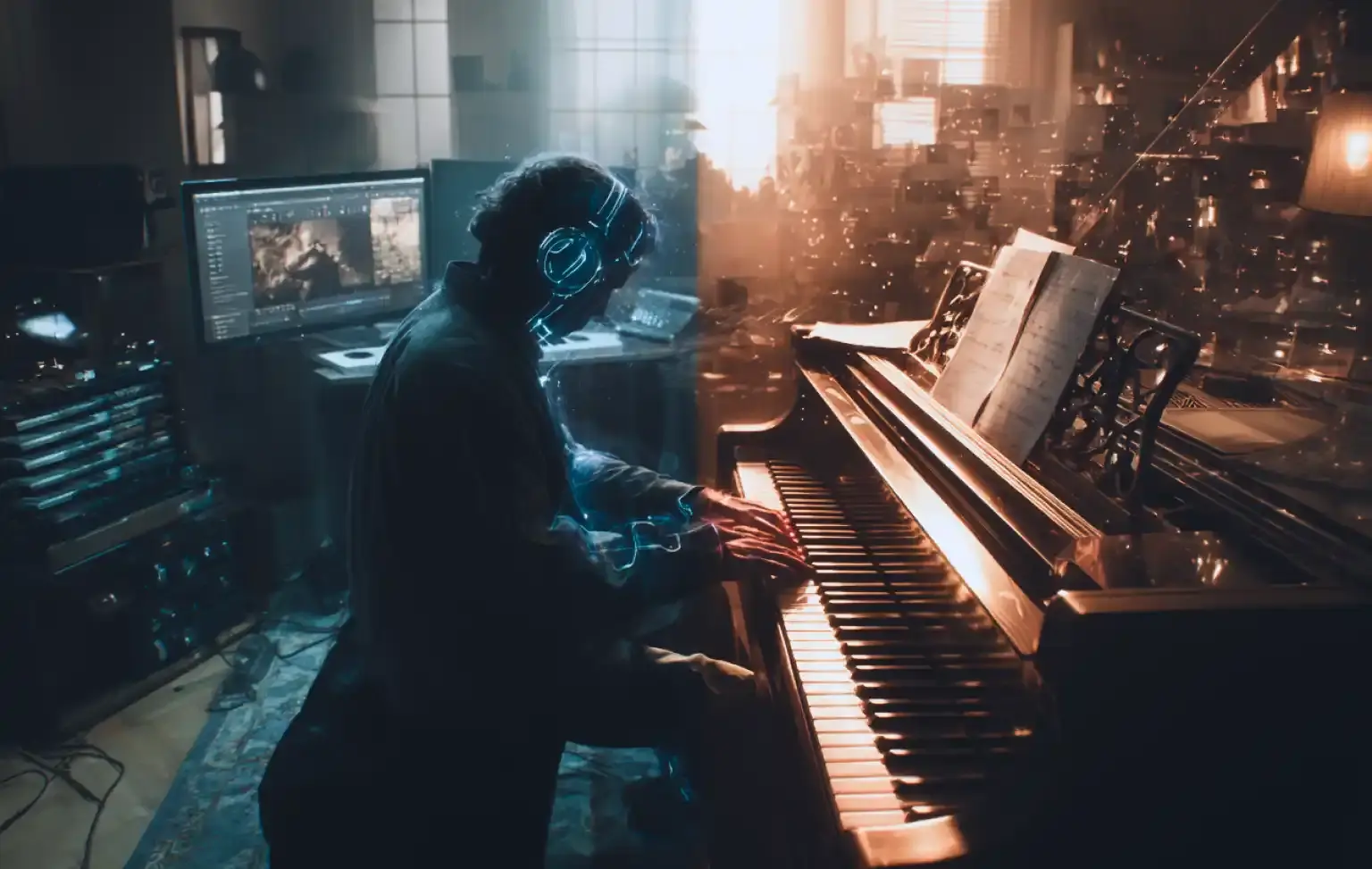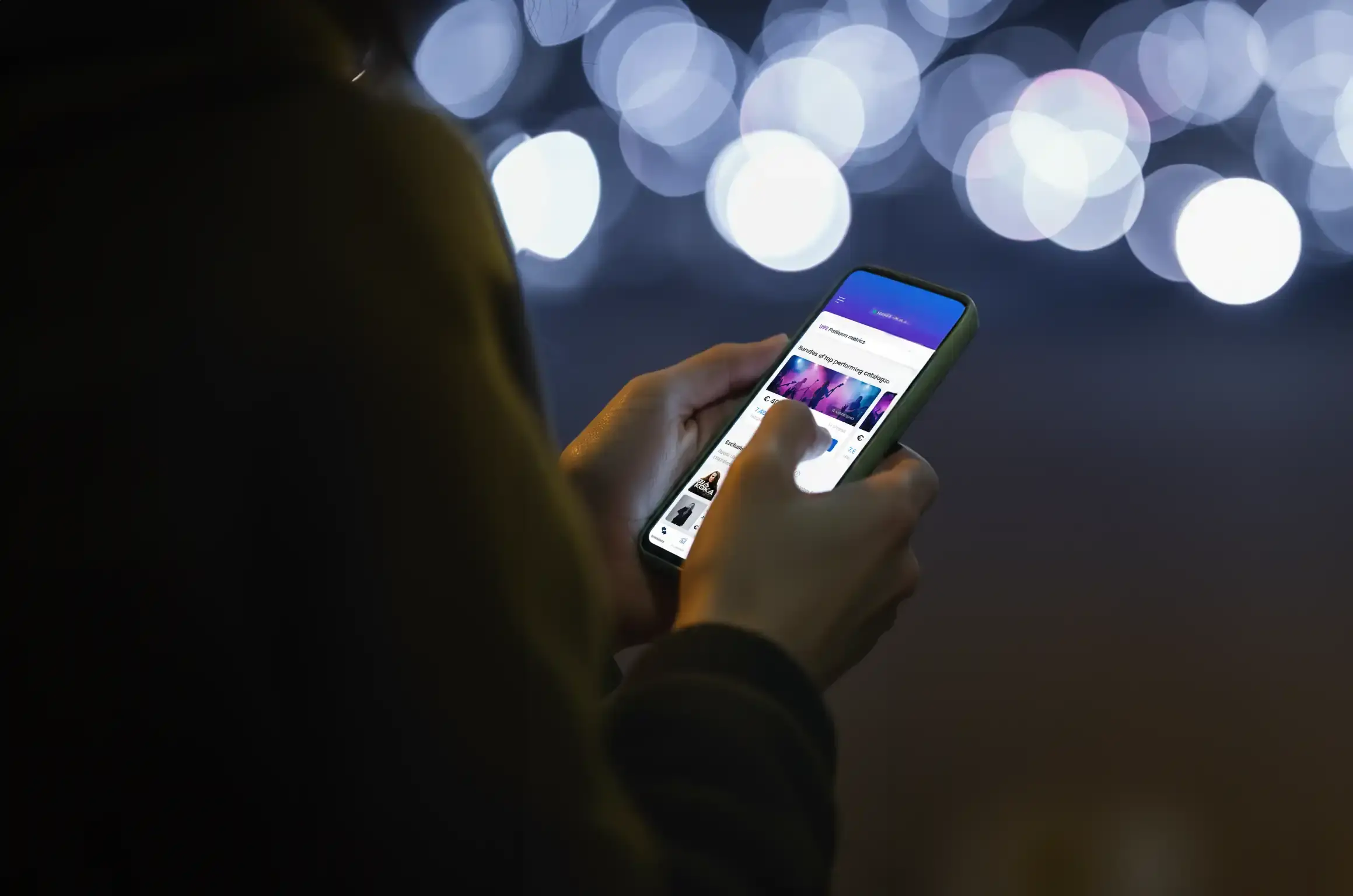Will AI change the music industry? Here’s our take.
ANote Music
October 29, 2025
4 min read

AI is accelerating how music is made: from melody generation to final mastering, what once took days can now be done in hours, sometimes even minutes. This shift opens new possibilities for both independent artists and established teams alike.
A Berklee Online survey found that by mid-2023 – roughly six months after ChatGPT’s release – nearly 60% artists reported using AI tools in their creative process. In the same period, ArtSmart.ai projected that the AI-music segment could lift industry revenue by more than 17% in the near term.
So the real question is different: Will AI change why people listen? At ANote Music we believe that tools may evolve, but human connection remains the centre of what makes music meaningful.
So AI can generate sound, but can it generate emotion?
Many in the industry remain skeptical. Research published on arXiv found that listeners associate human-composed music with qualities like imperfection, flow, and soul – elements that foster a deeper, emotional connection.
As noted in an opinion piece by the Redline Project, a Chicago-based digital journalism outlet:
“AI-generated music may be technically flawless, but it often lacks the human connection between artist and listener.”
Even legendary composer Nobuo Uematsu (Final Fantasy series) expressed his reservations in an interview with PC Gamer:
“I’ve never used AI and probably never will… Fluctuations and imperfections are what make music satisfying.”
A case in point: Taylor Swift, the most-streamed artist on Spotify in 2024. While her production is undeniably high quality, her lasting impact stems from something else – the ability to tell relatable human stories.
Her lyrics capture heartbreak, resilience, nostalgia, and personal transformation – experiences listeners identify with deeply. That’s why her music resonates. Not simply because it’s well-produced, but because it feels personal.
This is what AI, even at its most advanced, still struggles to replicate. It can imitate structure and melody, but it cannot authentically reproduce the emotional depth that makes a song memorable – the kind that compels us to hit replay, attend concerts, or recall the exact moment we first heard it.
Will AI change the royalties market?
This is where the impact of AI becomes particularly complex.
While AI is expected to dramatically increase the volume of music produced, it will not necessarily affect the quality or emotional resonance that drives listener engagement. The core economics of music consumption remain unchanged: people return to the songs that move them – not those that are merely novel or technically sophisticated.
For this reason, the royalties market continues to be driven by emotional connection. Regardless of whether a song is created by a human, by AI, or through collaboration between the two, royalties will ultimately flow toward the music that captures attention and inspires repeat listening.
The rise of AI introduces new risks.
A 2024 report from The Guardian warned that automated content creation could reduce artists’ income by up to 25%, as platforms become saturated with low-quality or artificially generated tracks.
In response to these concerns, Spotify took significant action in September 2025, removing over 75 million spam tracks linked to fraudulent practices involving AI-generated music. This decision followed widespread criticism surrounding deepfake content, including the track “Heart on My Sleeve”, which used AI to replicate the voices of Drake and The Weeknd. As reported by The Guardian, the song was ultimately removed following legal and industry pressure, particularly from Universal Music Group.
These developments underscore a key challenge: while AI presents new creative possibilities, it also calls for stronger safeguards to protect royalty integrity, artist rights, and market trust.
Can AI be used responsibly in the music industry?
While Spotify maintains that audience engagement with AI-generated music remains limited, the platform has taken proactive steps to regulate its use and protect the integrity of its ecosystem.
In response to growing concerns around deepfake vocals and streaming manipulation, Spotify has introduced stricter rules on content authenticity. It now supports a new industry standard developed by DDEX – the global organization for music metadata standards – which enables artists and rights holders to voluntarily disclose AI usage in songs.
Spotify has made its position clear: AI can be used responsibly, but transparency is essential. These measures are designed to ensure that AI-enhanced creativity does not come at the cost of trust, fair royalties, or artist recognition.
Emotion is what creates lasting value.
Each era brings new tools: from vinyl to streaming, analogue to digital, and now to AI-assisted creation.
AI is already reshaping how music is composed, produced, and distributed. But the reason we listen – the emotional connection, the storytelling, the shared human experience – remains unchanged.
As technology advances, the royalties market will continue to be driven by a simple truth: We return to the songs that make us feel something. And that’s what continues to drive royalties – the human connection that turns a song into something worth replaying.










